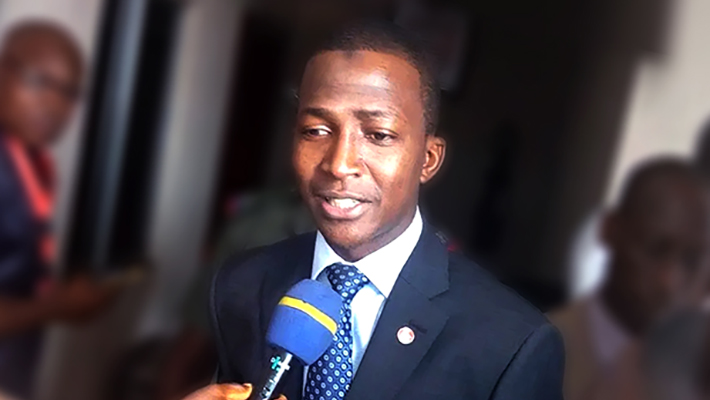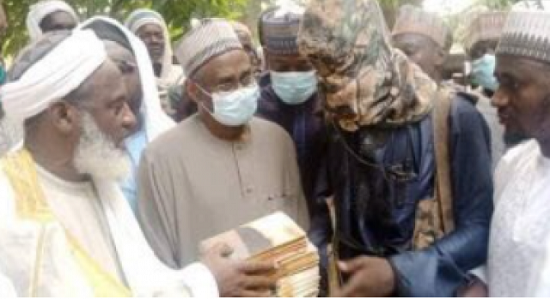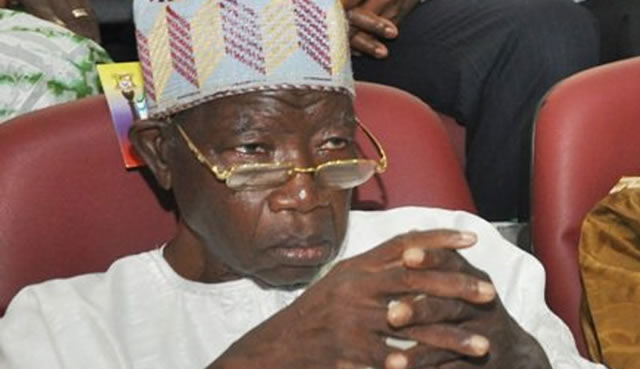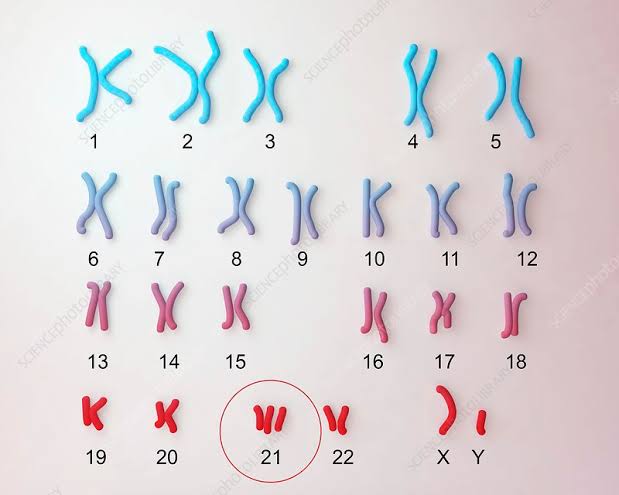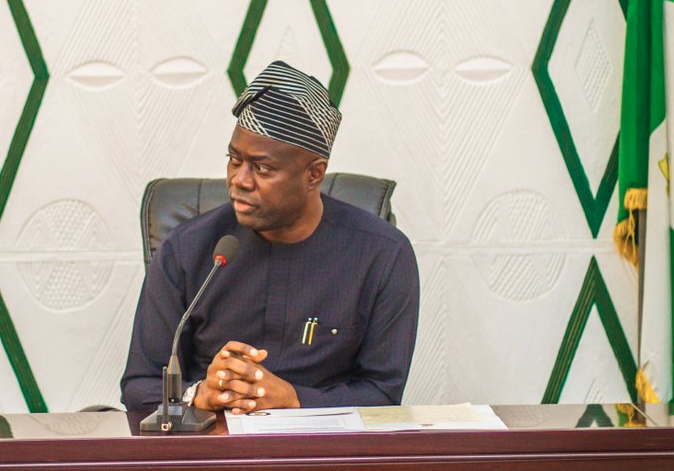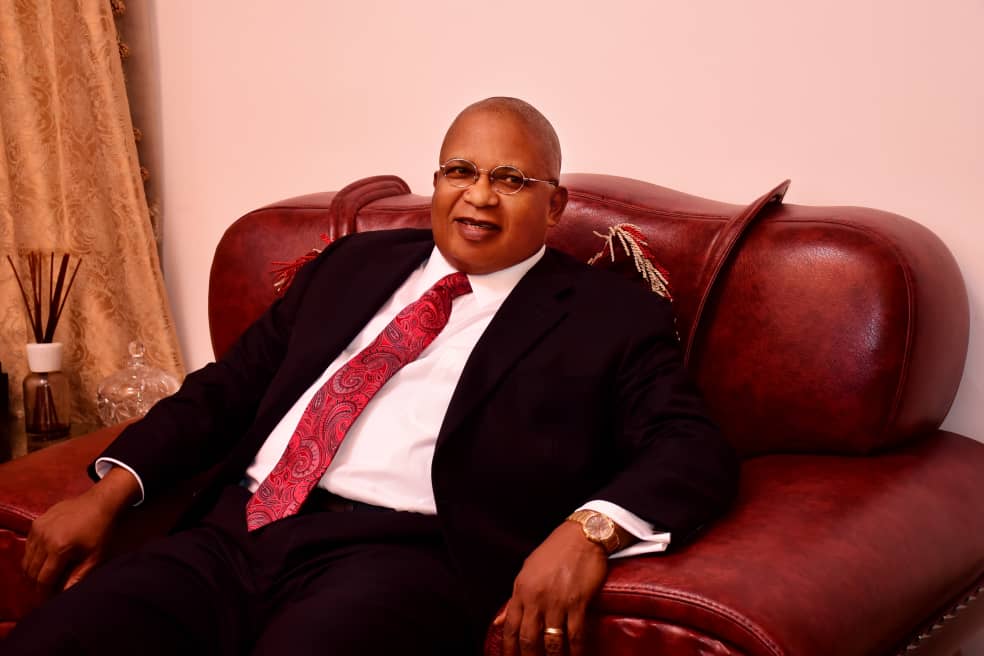BY JEROME-MARIO UTOMI
The conflicting reactions that recently trailed the of Abdulrasheed Bawa, a Nigerian detective and certified anti-money laundering specialist, as the new chairman of Economic and Financial Crimes Commission, reveal one thing. It shows that the road to restoration of trust among Nigerians by the federal government is a long one.
Bawa, an indigene of Kebbi, is a young man born on 30 April 1980 and holds a bachelor’s degree in economics.
Essentially, such an appointment was ordinarily supposed to elicit excitement among Nigerians but unfortunately the reverse was the case. Not because the newly appointed is not vibrant or capable but because of the perception crisis the fight against corruption enjoys and the federal government’s track record in this direction.
Advertisement
To some Nigerians with uncritical minds, the appointment is a welcome development. Their reaction is fuelled by the notion that corruption in government daily destroys and breaks the trust which is absolutely essential at the heart of representative democracy and has in the last decades, pushed many Nigerians into extreme poverty.
For others, such an appointment has become a regular music hall of fame. Their reason is predicated on the fact that President Buhari came to power about six years ago with a pledge to crack down on rampant graft in Africa’s biggest economy. Then, he created a climate of opinion in the country that looks upon corruption in public offices as a threat to society. But such feeling among Nigerians has not only waned but viewed as superficial as the purported fight only exists in the frames. Nigeria’s recent drop in Transparency International’s corruption perception index from 149th to 136th, placing it among the bottom 20 percent of countries, is a perfect example of this assertion.
To the rest, the appointments and entire noise about corruption as orchestrated by the federal government is more of a well said, rather than a well-done, phenomenon. While noting that corruption did not start with the present administration as it dates back to pre/post-independent Nigeria, where colonial overlords sufficiently legislated against it in the first criminal code ordinance of 1916(No15 of 1916) , they, however, argued that while the situation then may look ugly, what is going on now is worse and frightening. The original vision behind the EFCC, as created by Olusegun Obasanjo’s administration, was sharp but the current goal of the fight is blurred, they concluded.
Advertisement
Indeed, apart from helping to harmonise these opposing views via a thorough evaluation of strategies used by the commission in the past, particularly, as the beauty of every strategy can only be pictured in the result, the objective of this piece comes in double folds. First, to see how these worries expressed by Nigerians can assist the new chairman to carry out inward recalculation exercise within the commission. Secondly, to intimate him on why he must crown himself anti-corruption legend by following the part that guided others across the globe to greatness.
With the above in mind, it will necessitate the following questions; where are the legends in Nigeria that Abdulrasheed Bawa will learn from? In a nation that has for decades suffered leadership hemorrhage? Will such legends be found among his predecessors? Or will history become the only credible source of information he needs to bridge this understanding?
Honestly, in the opinion of this piece, he needs to learn from legends abroad.
This piece, therefore, recommends Lee Kuan Yew, pioneer prime minister of Singapore, as the legend that Bawa needs to understudy his actions and inactions in combating corruption in his country.
Advertisement
To help readers understand Lee’s choice, it is factually documented that he, within a short space of his administration, moved Singapore from the third world to a first world economy. He walked this path and came out beautifully victorious.
Now, let’s situate some examples of corrupt escapades in Singapore within the period under review with similarity in complexity to what Nigeria is presently going through.
In 1959, as documented by Lee Kuen Yew, both high and low profiled cases of corruption existed. High profile cases made the headlines. Several ministers were guilty of corruption, one in each of the decades from the 1960s to the 1980s. Corruption used to be organised on a large scale in certain areas.
Custom officers would receive bribes to speed up the checking of vehicle smuggling in prohibited goods. Personnel in the central supplies offices (the government procurement department) provide information on tender bids for a fee. Officers in the import and the export department received bribes to hasten the issue of permits. Contractors bribe clerks of works to allow short piling. Public health labourers were paid by shopkeepers to do their job of clearing refuse. Principals and teachers received commission from stationery suppliers.
Advertisement
Human ingenuity is infinite when translating power and discretion into personal gain. But, it was not difficult to clean up these organised rackets.
The above reality will provide the new chairman with an effective road map to fighting corruption in Nigeria.
Advertisement
Beginning with reality, Bawa urgently needs to commit to mind that globally, when prosecuting corruption, “it matters not whether the exchange is initiated by the person with the money or the person with the power; it is the exchange itself that is the essence of the corruption. It matters not if the private enrichment is with cash or with its equivalent in influence, prestige, status, or power; the harm is done by the fraudulent substitution of wealth for reason in the determination of how the power is used. It matters not if the purchase of power is seen as beneficial by some or even by many; it is the dishonesty of the transaction that carries the poison”.
There is another area of interest in Lee’s style/strategy that will offer a big helping hand to the new EFCC chairman. And that is Lee’s singleness of purpose to end the reign of corruption in the country.
Advertisement
One may ask how?
Upon assumption of office, Lee stated: “We made sure from the day we took office that every dollar in revenue would be properly accounted for and would reach the beneficiaries at the grass root as one dollar, without being siphoned off along the way. So from the very beginning, we gave special attention to the areas where discretionary powers had been exploited for personal gains and sharpened the instruments that could prevent, detect or deter such practices.”
Advertisement
On the strategy used, Lee Kuan Yew has this to say: “We decided to concentrate on the big takers in the higher echelons and directed the CPIB on our priorities. But for the small fish, we set out to simplify procedures and remove discretion by having clear published guidelines, even doing away with the needs for permits and approvals in less important areas. As we ran into problems in securing convictions in prosecutions, we tighten the laws in stages.”
Brief and Simple.
Without a doubt, if this war must be won, the commission must develop productive collaboration with the nation’s national assembly in this direction. The need to strengthen our existing laws and possibly enact new ones to suit the ever-changing legal environment has become overwhelmingly urgent.
In making this call, the piece has taken into cognizance that there is nothing more “difficult to handle, more doubtful of success, and more dangerous to carry through than initiating such changes as the innovator will make more enemies of all those who prospered under old order”. But any leaders that do, come out powerful, secured, respected and happy. This is an opportunity that Mr. Chairman must not miss.
Finally, to succeed on this assignment, Mr. Chairman, you need to borrow the body of Lee Kuan Yew in order to raise the soul of this fight against corruption via diligent investigation, because half-hazard investigations create escape routes for suspects.
Utomi Jerome-Mario is the programme coordinator (media and policy), Social and Economic Justice Advocacy (SEJA), Lagos. He can be reached via;j[email protected]/08032725374.
Views expressed by contributors are strictly personal and not of TheCable.
Add a comment
